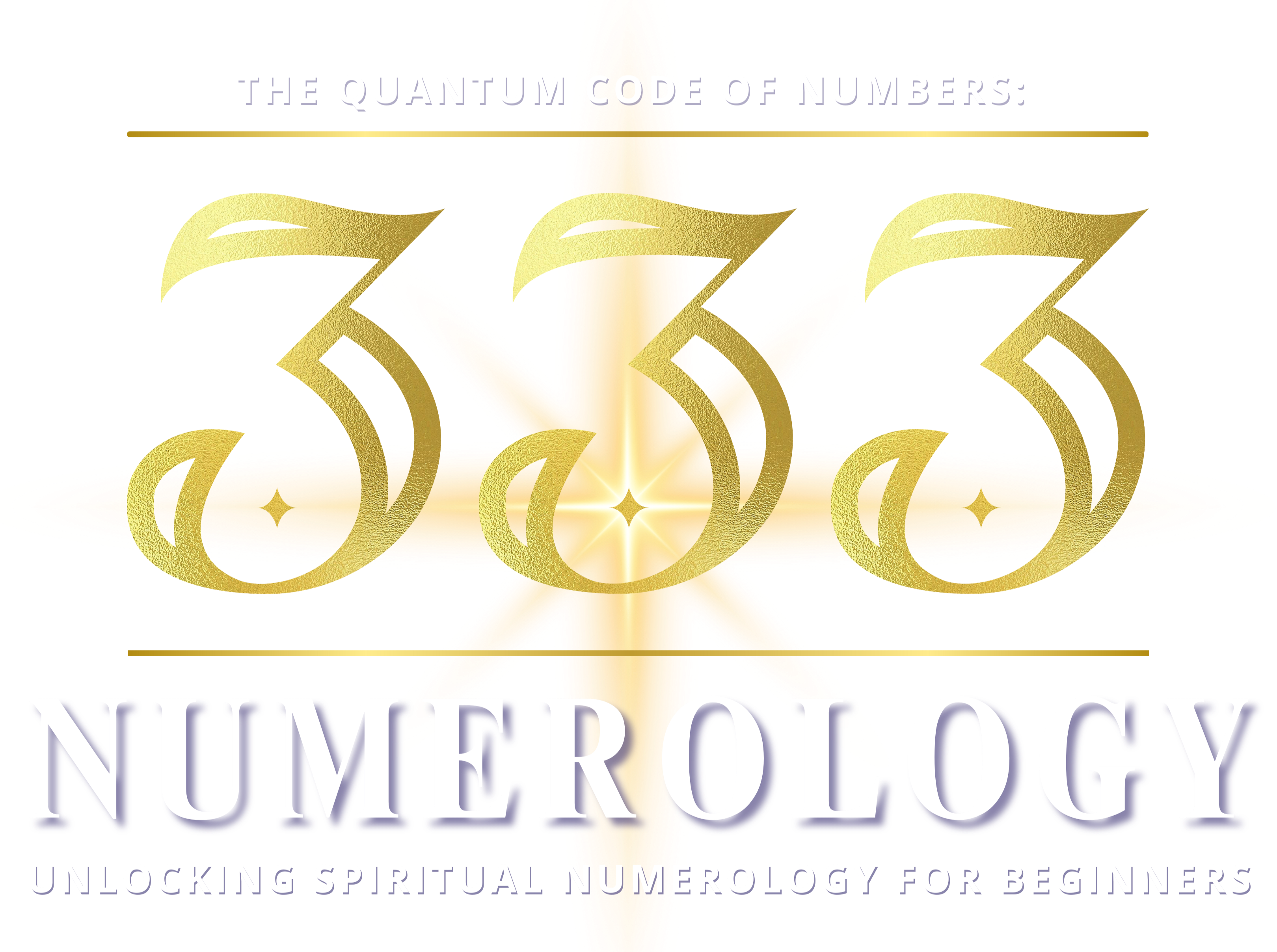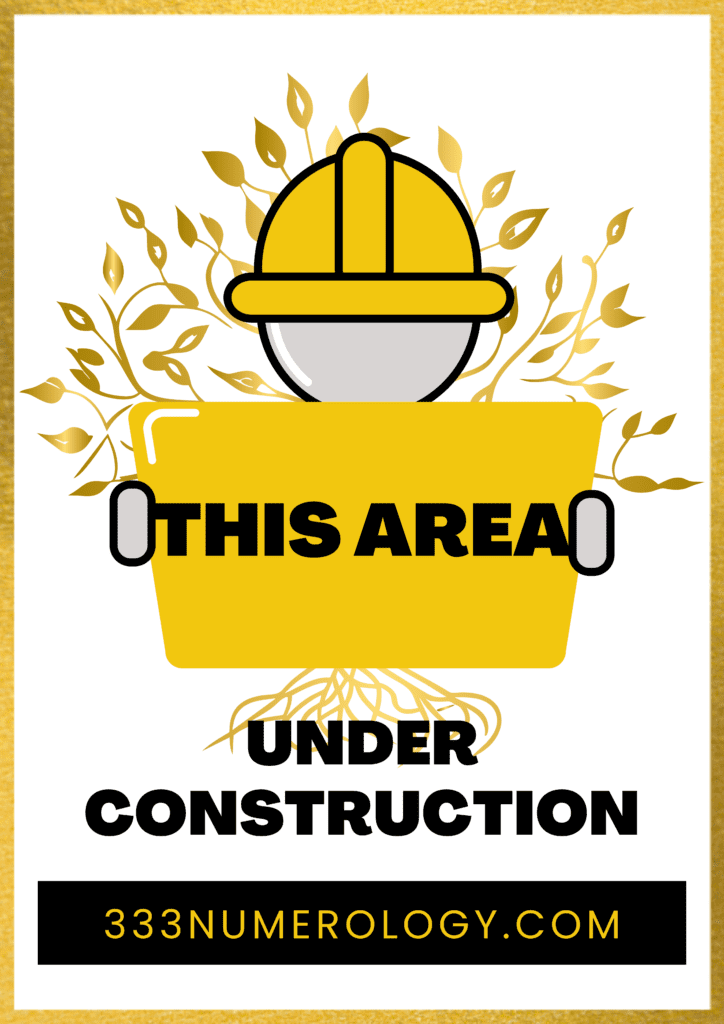33 Frequently Asked Questions
1. What is numerology, and how does it work?
Numerology is the study of numbers and their symbolic significance in understanding the world and oneself. It is based on the belief that numbers have inherent vibrational frequencies that influence events, personalities, and outcomes. By analyzing the numerical patterns in an individual’s birth date or name, numerologists claim to reveal insights about that person’s characteristics, life path, and potential. The foundational systems include Pythagorean Numerology, which is rooted in the belief that numbers contain hidden meanings related to universal truths (Nesfield-Cookson, 2000).
2. How can numerology be applied in business or organizations?
Numerology can be applied in businesses by using numerical analysis to optimize decision-making, hiring, branding, and strategy development. For instance, understanding the “Life Path Number” of employees can guide team dynamics, leadership choices, and organizational structure. Some entrepreneurs and corporations use numerology to choose auspicious dates for launching products, branding decisions, or corporate name choices, with the belief that favorable numbers can align energy and success.
3. Is there any scientific evidence supporting numerology?
As of now, there is no scientific consensus validating numerology. Numerology is often categorized as a pseudoscience because it lacks empirical, testable evidence that supports its claims. However, some researchers argue that numerology is similar to other psychological frameworks, such as personality typologies (e.g., Myers-Briggs), where insights may arise from symbolic interpretation rather than empirical science.
4. What is a Life Path Number, and how is it calculated?
A Life Path Number is a central concept in numerology that represents the core of an individual’s personality and life purpose. It is calculated by reducing a person’s birth date to a single digit. For example, someone born on July 17, 1985 would calculate their Life Path Number by adding all the digits:
7 + 1 + 7 + 1 + 9 + 8 + 5 = 38 → 3 + 8 = 11 → 1 + 1 = 2.
Their Life Path Number is 2, associated with diplomacy, balance, and partnership.
5. What are Master Numbers in numerology?
Master Numbers in numerology are the numbers 11, 22, and sometimes 33, which are considered more powerful or spiritually significant than other numbers. These numbers are believed to hold heightened potential for personal growth and influence. People with these numbers often face more intense life challenges but are thought to have greater potential for achieving mastery in areas like leadership and spirituality.
6. How does numerology relate to astrology?
Numerology and astrology both aim to understand human personality and destiny, but they do so using different systems. While astrology uses the positions of celestial bodies, numerology uses the vibrational frequencies of numbers. Some astrologers combine the two, using numerological calculations alongside astrological charts to gain deeper insights into personality traits and future predictions.
Maya Angelou’s inspiring quote: ‘Everything in the universe has a rhythm, everything dances,’ set against an abstract background of sparkling, colorful elements.
7. How can numerology help in making important life decisions?
Answer: Numerology can assist in decision-making by identifying the vibrational patterns associated with different choices. For instance, a businessperson might consult numerology to determine the best time to launch a product or invest, while an individual might use it to decide on a career path that aligns with their Life Path Number. Numerology is also used to identify personal strengths and weaknesses, helping guide career or relationship decisions.
8. How is numerology used in choosing a business name?
In business, the name of the company can be numerologically analyzed by assigning numerical values to each letter of the name and then reducing the sum to a single digit. Numerologists believe that this number can influence the success and energy of the business. For instance, a company name that sums to the number 8 might be considered powerful for wealth and leadership.
9. How can numerology help in personal relationships?
Numerology is used in personal relationships to analyze compatibility between partners. By comparing the Life Path Numbers of individuals, numerologists suggest that certain numbers are naturally harmonious, while others may face challenges. This insight can guide how individuals approach communication and conflict resolution in their relationships.
10. What is the significance of repeating numbers, like 333 or 111?
Repeating numbers are often seen as angel numbers in numerology, which are believed to carry specific spiritual messages. For example, seeing 333 repeatedly might suggest that one is aligned with their higher purpose and receiving guidance from spiritual forces. These numbers are interpreted as signs that one is on the right path or needs to pay attention to certain aspects of their life.
11. Can numerology predict the future?
Numerology is not designed to predict specific events but is more often used to provide insights into potential challenges and opportunities. It can suggest when certain life themes or experiences are likely to occur, based on cycles and patterns derived from one’s personal numbers. This helps guide preparation and decision-making.
12. How do numerologists explain the connection between numbers and personality?
Numerologists believe that each number holds specific vibrational qualities that influence a person’s behavior, strengths, and weaknesses. For example, someone with a Life Path Number 1 might be characterized as independent and a natural leader, while someone with a Life Path Number 7 is often introspective and analytical. These personality traits are derived from ancient numerological traditions.
13. Can numerology be harmful?
Numerology itself is generally harmless, as it is primarily used for guidance and insight. However, like any belief system, it can become problematic if taken too literally or if individuals rely solely on numerology for all decision-making without considering practical or scientific advice. It’s important to balance numerology with rational decision-making.
14. How do you calculate your Personal Year Number, and what does it mean?
The Personal Year Number is calculated by adding the digits of your birth date to the current year. For example, if your birthday is March 8 and the current year is 2024, you would calculate:
3 + 8 + 2 + 0 + 2 + 4 = 19 → 1 + 9 = 10 → 1 + 0 = 1.
A Personal Year Number of 1 suggests new beginnings and fresh starts, while a 9 Personal Year suggests completion and transformation.
15. How does numerology influence leadership?
Numerology can provide insights into leadership styles by analyzing numbers that correspond with leadership traits. For example, individuals with Life Path Numbers 1 and 8 are often seen as natural leaders, with strong ambition and decision-making capabilities. Numerologists suggest that understanding these traits can help leaders navigate their strengths and areas for growth.
16. How does numerology differ from other personality assessment tools, like the Myers-Briggs Type Indicator?
While the Myers-Briggs Type Indicator (MBTI) is based on psychological theory (Jungian typology), numerology is based on symbolic interpretations of numbers. MBTI categorizes people into specific personality types, while numerology assigns personal characteristics based on the vibrational qualities of their Life Path or Expression Numbers. Both provide insights into personality, but their foundations are different.
17. What is the Expression Number in numerology?
The Expression Number, also known as the Destiny Number, is derived from the full name at birth and reveals the talents, abilities, and areas where an individual is naturally inclined to succeed. This number is believed to reflect a person’s true potential and guide their life path in terms of career and personal fulfillment.
18. Can numerology guide financial success?
Numerologists claim that certain numbers are more favorable for wealth and financial success, particularly the numbers 8 and 4, which are associated with discipline, power, and material success. Numerology is sometimes used to choose auspicious dates for financial decisions, such as signing contracts or launching businesses.
19. How do cultural differences affect numerology?
Different cultures have their own interpretations of numerology. For example, in Chinese culture, the number 8 is considered extremely lucky because its pronunciation is similar to the word for prosperity. In contrast, the number 4 is often avoided because it sounds like the word for death. These cultural interpretations add a layer of meaning to numerological practices across the world.
20. How does numerology explain career success?
Numerology can provide insights into career success by aligning a person’s natural abilities and talents with their Life Path or Expression Number. For instance, someone with a Life Path Number 3 may excel in creative fields, while a Life Path 4 might be suited to structured, methodical professions like engineering or accounting.
21. What is a Karmic Debt Number?
A Karmic Debt Number in numerology represents lessons or challenges from past lives (or unresolved issues) that an individual must overcome in this lifetime. Common Karmic Debt Numbers are 13, 14, 16, and 19, and each is associated with specific life challenges, such as overcoming laziness or self-doubt.
22. How can numerology help improve mental health?
Numerology can offer mental health benefits by providing individuals with a framework to understand their strengths, challenges, and life purpose. This self-awareness can lead to increased confidence, reduced stress, and a sense of direction. However, it should not replace professional mental health care.
23. Can numerology be used to analyze a company’s brand?
Yes, numerology can be used to analyze a company’s brand by examining the numerological significance of the company name, logo, or launch date. Numerologists believe that aligning a brand with certain numbers can enhance its success and appeal to its target audience.
24. What is the significance of the number 333 in numerology?
In numerology, the number 333 is considered a powerful angel number that symbolizes guidance and protection from higher spiritual forces. It is often interpreted as a sign that one is on the right path and should trust their intuition.
25. How does numerology explain recurring patterns in life?
Numerology suggests that recurring patterns, like repeating numbers or life events, are related to numerological cycles. These cycles reflect opportunities for growth or challenges that need to be addressed. Numerologists use tools like Personal Year Numbers and Pinnacle Cycles to explain these patterns.
26. What is the Soul Urge Number in numerology?
The Soul Urge Number, also known as the Heart’s Desire Number, represents a person’s inner motivations, passions, and desires. It is calculated from the vowels in a person’s full name and is believed to reveal their emotional and spiritual needs.
27. How can numerology be used for spiritual growth?
Numerology is often used as a tool for spiritual growth by providing insights into life purpose, soul mission, and karmic lessons. By understanding their Life Path Number, individuals can align their actions with their higher spiritual purpose and work on areas that require development.
28. How can numerology help in education or learning?
Numerology can help in education by identifying learning styles and strengths based on an individual’s personal numbers. For instance, someone with a Life Path 7 might excel in analytical subjects like science and philosophy, while a Life Path 3 might thrive in creative or communicative fields like literature or art.
29. How does numerology apply to government or politics?
Some numerologists offer consultations to governments or political leaders, using numerology to select auspicious dates for signing agreements, launching campaigns, or making important decisions. By aligning these actions with numerologically favorable times, they believe leaders can enhance the likelihood of success.
30. Is there any historical basis for numerology?
Yes, numerology has historical roots dating back to ancient civilizations, particularly in Greece and Egypt. Pythagoras is often credited with formalizing numerology, as he believed that numbers were the key to understanding the universe. His numerological system forms the basis of what is now known as Pythagorean Numerology.
31. How can numerology help in team building?
Numerology can be used in team building by analyzing the Life Path Numbers of team members to identify complementary strengths and weaknesses. By understanding how different numbers interact, managers can build more harmonious and effective teams.
32. What is the significance of the number 8 in numerology?
The number 8 in numerology is associated with power, authority, and financial success. It represents material abundance and leadership, and individuals with this number often have a natural ability to handle money and lead large organizations.
33. Can numerology be combined with other spiritual practices?
Answer: Yes, numerology is often combined with other spiritual practices like astrology, tarot, or meditation. These practices complement one another by providing different perspectives on a person’s life path, challenges, and spiritual growth.
The number 8 in numerology is associated with power, authority, and financial success. It represents material abundance and leadership, and individuals with this number often have a natural ability to handle money and lead large organizations.
Sources
Bernard Nesfield-Cookson. – The Mystery of Number. Rudolf Steiner Press, 2000.
David A. Phillips – The Complete Book of Numerology (1994): An in-depth look at the science and spiritual significance of numbers, exploring how they influence personality and destiny.
Faith Javane & Dusty Bunker – Numerology and the Divine Triangle (1979): A classic text combining numerology with tarot to deepen understanding of life paths and spiritual growth.
Hans Decoz – Numerology: Key to Your Inner Self (2001): This book presents practical insights into how numerology can reveal inner strengths, challenges, and life purpose.
Ida M. Baisley – Numerology and the Law of Vibration (1958): One of the earlier works connecting numerology to the broader concept of universal vibrations and energy fields.
Juno Jordan – Numerology: The Romance in Your Name (1965): A foundational book for beginners exploring how names and numbers affect life choices.
Kevin Quinn Avery – Numerology: The Science of Numbers (1986): A detailed study of numerology’s history and modern-day applications, offering a scientific perspective on numbers.
Mark Gruner – Numbers and Destiny: Numerology in Action (2004): A contemporary look at how numerology can be applied to personal and professional life decisions.
Pythagoras. Fragments on Mathematics.
Do you have a question about numerology that is not listed here?
Please contact us 333numerology@gmail.com or see our contact page.



